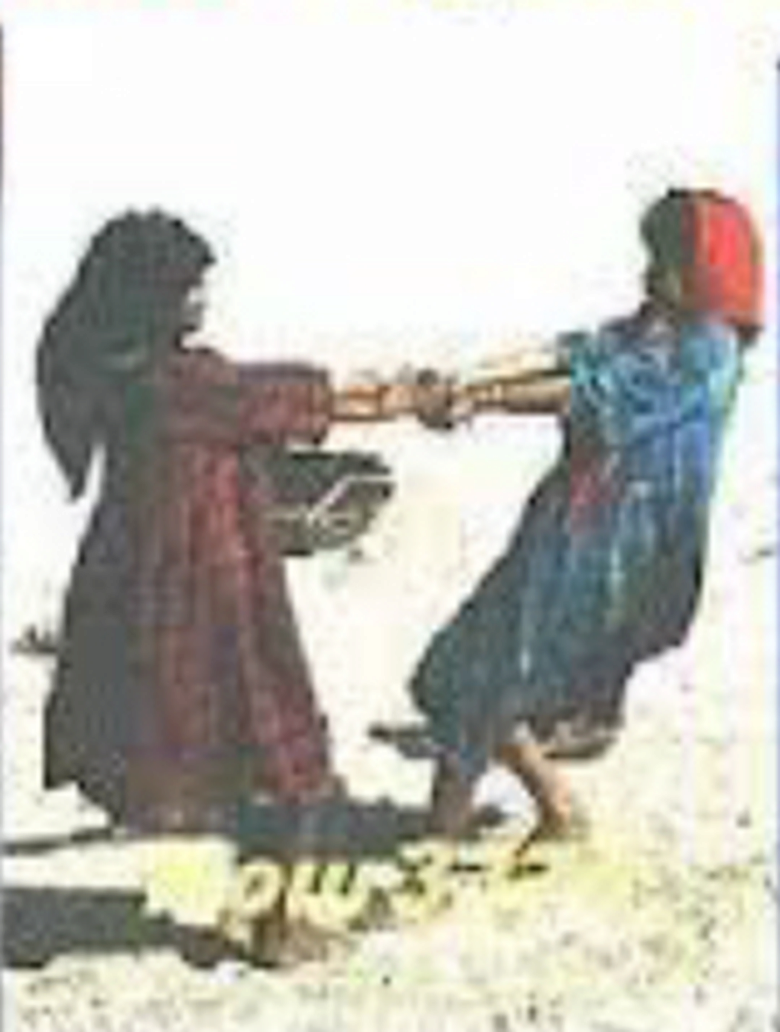Andalusian memory

In Algeria and Morocco, we used to sing an inherited song when we were young, and there was no one among us who did not sing it when we were young. It was inherited from the Andalusian Muslims who were expelled from their country, Andalusia, and immigrated to Algeria, and we did not know the amount of sadness and suffering contained in this song.
The song says
This is the Seville of Toliola (that is the Seville we will come to)
They did not kill me, they did not give me life (the torture to which Muslims were subjected during what was called the Inquisition)
They gave me something other than the cup (they were forcing them to drink alcohol until they were sure of their religion)
The thief Maemochi (meaning that the Spaniards have returned and their history has not died as we thought)
News came to Valcoche (meaning news came of the return of the Spaniards with the messenger riding a horse-drawn carriage)
It is a song that we sang a lot and that made us happy when we were children, but it carries all the meanings of the pain and suffering that our forcibly displaced ancestors experienced from their homes.
This is one of the songs of the Moriscos and Andalusians who emigrated from Andalusia, in which they describe their tragedy and suffering on the way... and the meanings of their words:
The road to Seville, they return to it - meaning the Christians and the Alawj - they did not kill me and did not revive me due to the abundance of torment, so I am neither alive nor am I dead from the cup of woe that I drank. This son of the forbidden - meaning the Alawj - does not die, and news of him came in Al-Kochi, and Al-Kochi: a means of transportation. Relying on a small horse pulling a cart…
The strange thing is that Moroccan and Algerian children, especially those of Morisco origin, sing it while dancing, holding each other’s hand with the other’s hand, facing each other...”

“Tik Shabila” means “Seville Road,” and perhaps the Moriscos who immigrated to Morocco at that time had a foreign language that dominated their tongues, so they used to pronounce the Qaf Kafa, and then all Moroccans learned it with its foreign language.
“Tulleo Laha” Although there are those who interpreted it as saying that the Christians are the ones who will go to it, I tend to consider the pronoun to refer to the Andalusians, and here the meaning becomes “Tulleo Laha’s” “the road to Seville to which you will return.” This is an expression of the Andalusians’ longing to return to their land in Seville.
“They did not kill me, they did not give me life...that cup they gave me.” During the displacement of the Moriscos from Andalusia, some Christians were forcing them to drink alcohol in order to allow them to pass, increasing their contempt and humiliation, as they were not dead and not alive due to the severity of humiliation.
The continuation of this song among us to this day is evidence of the decline of Andalusia in the depth of our collective memory, despite the passage of centuries since the tragedy of its fall. It is our duty to preserve it so that it continues on our tongues and on the tongues of our children. Perhaps we will thus preserve the memory of Andalusia in our consciences.
Source: websites

